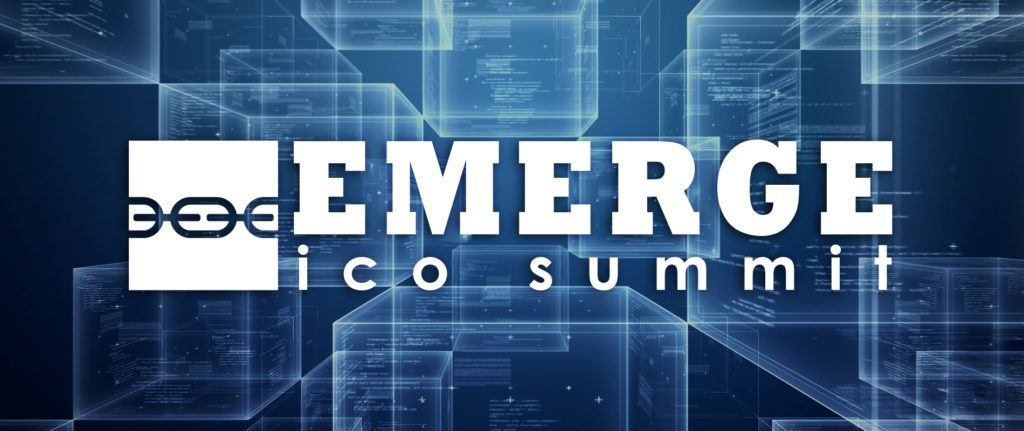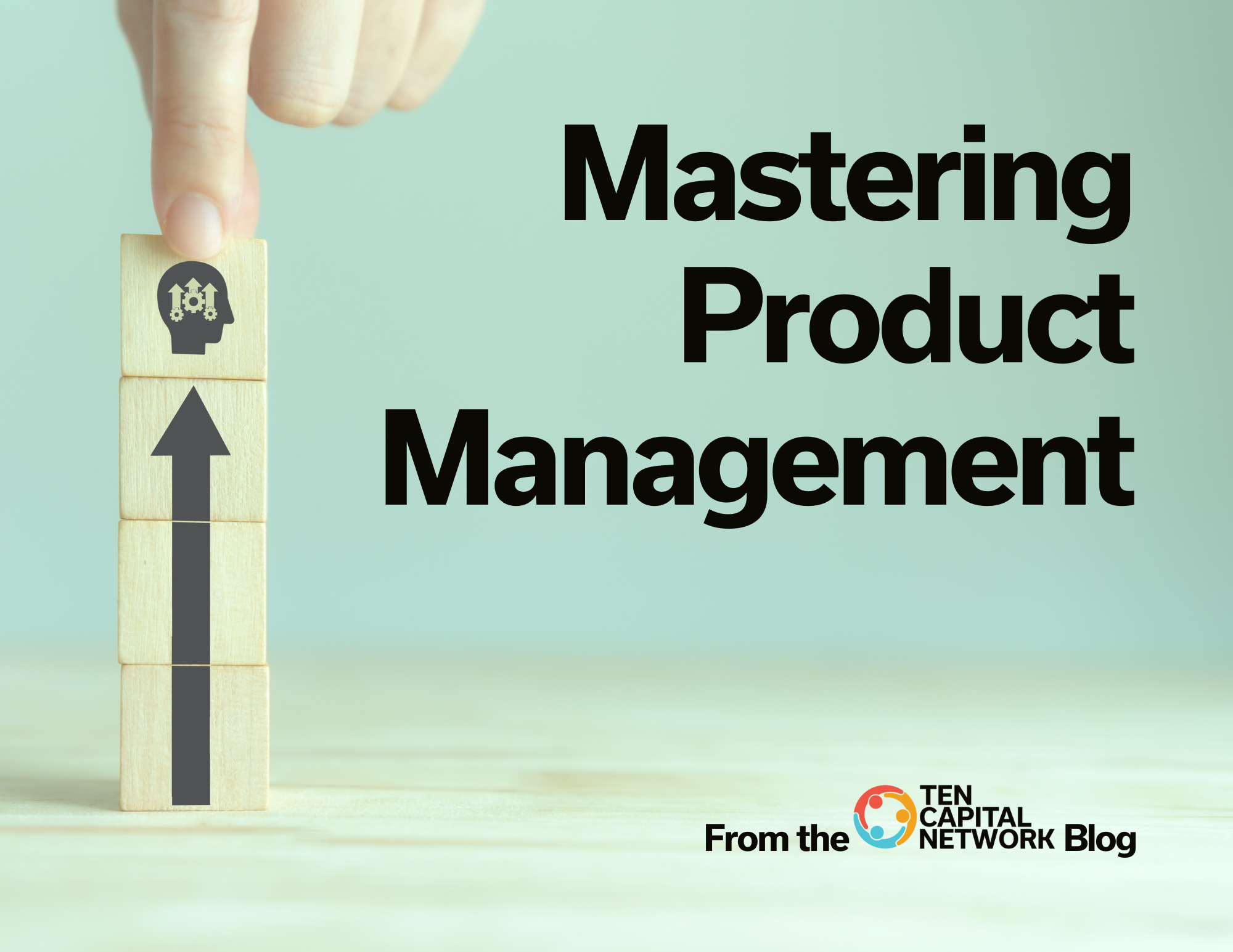TEN Capital recently held its annual tech event in Austin called the Emerge ICO Summit. This year the theme of the conference focused on blockchain applications and how to raise funding for your blockchain startup. To view the agenda, speakers and topics, you can visit the Emerge ICO Summit page.
This was a wonderful event and here are our eight takeaways.
#1- Blockchain is the next big thing– the move to Blockchain applications is inevitable but the timing is unpredictable.
A decentralized internet is a foundational solution to many problems with the current network. A year ago blockchain was the domain of lead users, early adopters, and technologists. While the technology is still nascent, today the interest and participants have broadened greatly with new entrants from established companies, institutions and governments. The interest is broad-based covering all major industries including supply chain, fin-tech, real estate, and healthcare and others.
Since blockchain is coming, the only question is the rate of adoption. Infrastructure continues to build out but it takes time to develop. The first blockchain solutions are coming onto the market and are now on-boarding users. Very few blockchain applications have paying users. The Dot com era spent five or more years building out the basic platforms before any real productivity value could be seen. Blockchain appears to be following a similar time timeline.
#2- It’s STILL early days for Blockchain Applications
Most of the applications of blockchain are still at the infrastructure layer and will take years to build out. There are many independent cryptocurrencies, technology solutions, and platforms. Digital assets are hard to evaluate and can be easily manipulated by the market. There’s a disconnect between the fundamental regulatory requirements between the cryptocurrency world and the bigger financial ecosystems. There’s no common model to value digital assets. There are no 3rd parties to analyze, rate and value assets. Jouko Ahvenainen of Grow VC highlighted the challenge of the early days for blockchain companies in his talk- The Status and Future of Tokenization, Blockchain and Finance Disruption. Jouko also gives further details in an Investor Connect podcast interview.
#3- Blockchain systems are expensive to build so they should be applied to projects that are trust expensive.
Blockchain is a highly inefficient database and expensive to build. It must be applied to applications that require high trust value. Supply chain, financial and government applications are three key areas for early adoption. Centralized functions such as domain registry and governmental services will be disrupted first. See more from the conference at 21:00 in this video: Defining Properties of The Consensus based Business Environment
Other areas of early focus include Identity and Privacy. Identity is a key enabler of many applications such as fin-tech, travel, and security applications. You can hear more about the travel industry by Pedro Anderson at 15:00 minutes into the Blockchain applications panel.
Privacy continues to grow as a concern for users and is moving to the top of the list of benefits of blockchain. Anupam Govil describes this at 18:00 in the Blockchain applications panel video.
#4- Blockchain is a business model change as well as a technological change.
Blockchain is not only a technology change but also a new business model. The use of tokens and decentralized computing will open up new methods of business. Tokens enable many new forms of ownership and incentive that goes beyond what fiat currency can accomplish. One example is the BMX token from BitMED which lets users transact using their own healthcare data. Rishi Madhok, CEO of BitMED describes the use case in this video.
#5- Everything that can be digitized will be digitized.
Blockchain is the next logical step in the evolution of the internet. Everything that can be digitized will be digitized as to monitor, maintain, and own an asset will require that it be represented in digital form. This means all real estate, property, financial assets, and more will need to be digitized so it can be tracked by digital systems.
#6- A minimal viable product is replaced by a minimum viable network.
The concept of an MVP (Minimum Viable Product) is being replaced with the concept of a MVN (Minimum Viable Network). Blockchain applications require digital eco-systems to be effective. To launch a blockchain system requires wallets, exchanges, payment tools in addition to the core functionality of the system. To make it useful for the user there must be a minimum set of tools.
Justin Newton of Netki talked about this at 41:58 in the Blockchain applications panel video.
#7- Some application areas attributed to disruption by blockchain are simply digitizing their systems.
Not every technical solution will be implemented with blockchain technology. Some application areas draw value from technology by simply moving their system into a digital format. Supply chain is one example. It’s more about digitizing the system rather than applying pure blockchain technology. In the travel industry, the benefit of technology is in having a common platform that the industry can share information about flights, hotel, and transportation. There are some specific applications in these areas in which blockchain provides additional value but for the value add comes primarily from having everything online in one digital network.
#8- Regulatory financial institutions need more compliance installed in the Blockchain space before they can engage the technology fully.
The SEC deems tokens to be securities since they are speculative in nature. Blockchain users want to mint and use tokens for their utility without the regulatory restrictions that come with securities. The solution to solving the utility token/security dilemma is to regulate the exchanges on which they are traded. None of the crypto exchanges are regulated yet. They show the window dressing of a regulated exchange with bid/ask spreads and limit offers but they are not truly regulated the same way that NASDAQ or other traditional exchanges are. Once the exchanges come under regulatory purview, the space will take off. Robert Crea talks about this at 20:37 in his Regulatory Environment for ICOs and Cryptocurrencies session.
Regulated financial institutions cannot adopt blockchain technology for custody, securities issuance, and trading until compliance questions can be answered. Liquid markets require ongoing compliance. Dave Hendricks speaks to this at 3:17 in this video.
Notable presentations from the Emerge ICO Summit:
Rob Leslie — Sedicii
Identity is badly broken. Identity verification today is still based primarily on outdated techniques such as driver’s license and other non-digital means. Blockchain provides evidence at a moment of time but by itself does not guarantee truth. Zero Knowledge proof allows for information to be matched or shared without sharing the information.
Website: https://sedicii.com/
Sedicii presentation at the Emerge ICO Summit
Davie Hendricks – Vertalo
Vertalo is a stakeholder Registry and Cap Table platform for SEC Compliant Security Token offerings. They connect broker-dealers, issuers, exchanges and ATS’s. Vertalo provides digital asset liquidity solutions for financial institutions.
Website: https://www.vertalo.com/
Vertalo presentation at the Emerge ICO Summit
Rishi Madhok – BitMED
The data market in healthcare is massive. BitMED brings a blockchain protocol for healthcare with structured data that can be data mined. Pharmaceuticals spend $80B in R&D with a 6% to 9% growth in spending. The BMX token allows for access to the network and transactions for the data.
Website: https://www.bitmed.io/
Bitmed presentation at the Emerge ICO Summit
Alan Young — DNotes
Alan Yong, CEO/Founder of DNotes Global speaks about micro-payments and how regulated ICO will change the world.
Website: https://dnotescoin.com/
DNotes Global presentation at the Emerge ICO Summit
Ling Qing Meng – iCash
Proof of Trust protocol added to Smart Contracts that lets users validate contested data. Delegates are compensated to validate queries posed.
Website: https://www.icash.io/
The Economic Model of Dispute Resolution on the Blockchain
Daniel Arulraj – Vaultwallet
Vaultwallet is a universal blockchain wallet that delivers an intuitive user experience without compromising security with a mobile-first approach.
Website: https://vaultwallet.io/
Vaultwallet presentation at the Emerge ICO Summit
Andrii Zamovsky – Ambisafe
Defining properties of the consensus-based business environment. Andrii talks about how blockchain will establish its own financial institution built from the ground up in a digital ecosystem.
Website: https://ambisafe.com/
Defining Properties of The Consensus based Business Environment
 Hall T. Martin is the founder of TEN Capital and a builder of entrepreneur ecosystems by startup funding through angel networks, funding portals, syndicates, and more. Connect with him about fundraising, business growth, and emerging technologies.
Hall T. Martin is the founder of TEN Capital and a builder of entrepreneur ecosystems by startup funding through angel networks, funding portals, syndicates, and more. Connect with him about fundraising, business growth, and emerging technologies.





